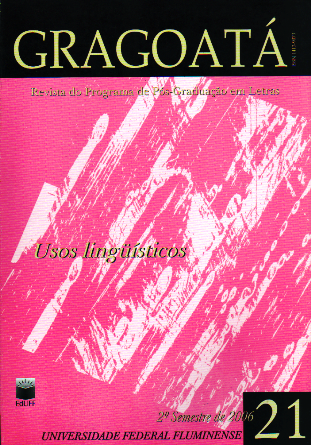An ethos for Hercules: considerations on the production of sense in the editorial management of texts
Keywords:
authorship, text edition, discursivity, ethosAbstract
Many editorial projects are looking forward to comprehend the processes involved in the constitution of authorship. Many evidences point out to the fact that the publication of a book implies many different social actors and technical devices. In terms of the editorial treatment of texts, on the textual materiality that will be published, there is a kind of debate about its ideas and organization, i.e. a kind of dialogue that takes place on the text body in which are proposed corrections and changes, and many questions are raised. Within the ambit of discursivity, this editorial practice implies linguistic maneuvers that reveal how, at this point, this text is still under construction. Despite the fact that the text has been structured as a final version, after going through this reading/diologue process, it moves – sometimes towards new directions, sometimes emphasizing some traces or abandoning others. Considering all the aspects above, I take into account the notion of ethos as proposed by Dominique Maingueneau to analyze excerpts of the editorial treatment given to one version of “The Twelve Labors of Heracles”, for which subtle changes in the discursive cenography necessarily change the ethos that take part of it, shading the myth.Downloads
Downloads
Published
How to Cite
Issue
Section
License
Authors who publish in Gragoatá agree to the following terms:
The authors retain the rights and give the journal the right to the first publication, simultaneously subject to a Creative Commons license CC-BY-NC 4.0, which allows sharing by third parties with due mention to the author and the first publication by Gragoatá.
Authors may enter into additional and separate contractual arrangements for the non-exclusive distribution of the published version of the work (for example, posting it in an institutional repository or publishing it in a book), with recognition of its initial publication in Gragoatá.

Gragoatá is licensed under a Creative Commons - Attribution-NonCommercial 4.0 International.











